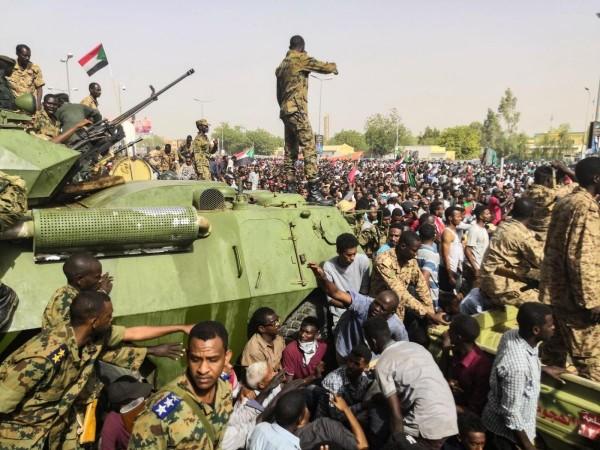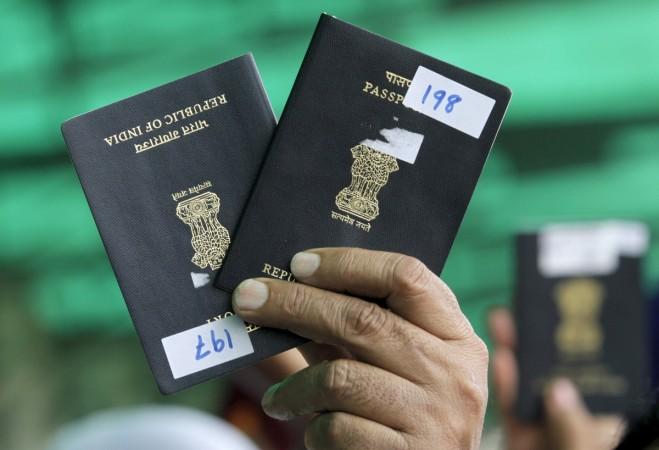For the 62 Indian nationals stranded in Sudan, with their salaries withheld and passports taken away, neither does the New Year bring any hope of a fresh start nor has the ordeal of the previous year ended.
Working for the Nobles Group, one of Sudan's largest ceramic tile manufacturers, their nightmare began after the military coup in October. Following the coup, the company's Sudanese owner Muhammad Al-Mamoun absconded to the Middle East with the company taken over by the military government.

Where is the owner now?
The search engine hardly throws up any details of the company's owner Muhammad Al-Mamoun. But before the coup and military takeover of his company, Nobles Group has been the umbrella brand for diversified business in Sudan, with investments in railways, petrochemicals, agriculture, tile manufacturing, construction and real estate.
A report in the The Indian Express, quoting Sudanese journalists, highlights how in a legitimate Facebook page the country's anti-corruption committee Empowerment Removal Committee lists a detailed report of why Al-Mamoun's funds/movables, real estate and property were retrieved by the government and criminal proceedings initiated against him.
Ironically, the company's official website, is still seeking applications from those looking at making a career with the group.
What is the current status of Indian employees?
One of the stranded Indian employees at the Al Masa porcelain factory, located on the outskirts of capital Khartoum, told Indian Express about not getting his salary for the past one year and inhuman conditions of living. "In this company, 25 people are working and none of us have gotten our salaries," said Maruthi Ram, Dandapani.

It's neither a one off case nor restricted to one factory as things are not very different about 80 kms away at the RAK Ceramics factory, again owned by the Nobles Group. 41 Indian nationals working here have also not been paid their remuneration for close to a year. Unfortunately, there's no way out for any of them either, as their passports have been withheld. Citing company policy, the workers have been prevented from leaving Sudan and circumstantially locked up in company's headquarters in Khartoum.
Caught in the vicious circle of circumstances
In the report highlighting their unfortunate plight, another employee Raju Shetty shares his ongoing ordeal, "When I first came here, one month passed away and we asked our general manager for the salary. She kept giving excuses that it would be given next month."
The excuse continued for several more months, adds Shetty, who came to the republic from Karnataka nearly eight months ago. At first the company cited lack of funds. Four months of chasing resulted in them being paid only one month of salary. "Then two more months passed in discussion and then just when they said they were going to pay us, the coup happened and the manager said the government seized the property," he said further.
Employees from across several states of India have been recruited by the Sudanese company with promises of hefty wages, enough to comfortably settle their families back home. Many of them are the sole earning members with their respective families dependent for the basic necessities. Situation has worsened to the extent that instead of them supporting those back home, they are having to accept money for food and water. Some of them have resorted to selling old machine parts to scrap dealers for sustenance.
Why is the Indian embassy not doing anything?
It's been a few weeks that employees at both the factories desperately got in touch with Indian embassy in Khartoum, narrating their plight and more importantly, demanding their passports back. The embassy says eventually, 'it will happen," but refuses to mention time or even give a deadline. The report further states that Indian Embassy in Sudan did not respond to the request for comment.

Given the domestic political upheaval, the Indian embassy may not be able to do much or at least any time soon. While the embassy does its bit and tries to liaise with the Sudan government, in the meanwhile workers are running out of long tested patience, already suffering health and bare minimum resources. For miles and miles at stretch, there are only sand dunes, hospital is out of reach unless there are resources to reach via car, and access healthcare. That is also not where their worries end, their passports require renewal every two months and each of day of overstay costs money.
Previously the renewal process was undertaken by the company's HR, but now there is a huge question mark on that legal formality. There has already been one suicide attempt. Many of them have even given up hope of getting their dues back, they only want passports now and a ticket back home.

















